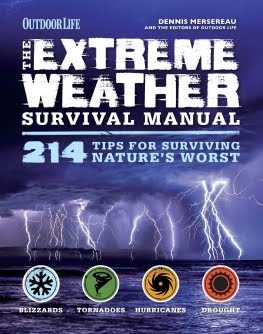We're a few weeks past the peak of hurricane season but the threat isn't over yet. I wrote a post a few days ago explaining that tropical activity in October and November typically forms in the Gulf of Mexico and Caribbean—we're creeping back into the period when we won't have the luxury of watching disturbances roll off Africa nearly two weeks before they become an issue for the U.S.
Tropical Storm Gamma
Gamma formed on Friday from a vibrant disturbance in the western Caribbean. The system rapidly strengthened into a 70 MPH storm before making landfall on the Yucatan Peninsula early Saturday afternoon.
The tropical storm will weaken a bit before it emerges over the southern Gulf of Mexico on Sunday and turns back toward Mexico. A cold front draped across the Gulf of Mexico will prevent the storm from continuing north into the United States.
The greatest threat from this system is flooding rains in Mexico. The storm could produce up to a foot of rain in higher elevations, which could lead to widespread flash flooding and mudslides in vulnerable areas.
A Trio Of Disturbances
➤ System #1
Hot on the heels of Tropical Storm Gamma is a disturbance that has a high (70 percent) chance of developing into a tropical depression by early next week. If it develops into a tropical storm, its name would be Delta.
The cold front that blocked Gamma from moving toward the United States will dissipate by early next week, allowing this new disturbance to move through the Yucatan Channel into the Gulf of Mexico.
If the system manages to develop, there's a decent chance that we'll have a tropical system moving toward some stretch of the Gulf Coast by late next week. The environment should be conducive to some strengthening and sea surface temperatures in the western Caribbean and southern Gulf are still in the mid- to upper 80s.
It's too early for many specifics on the system beyond . It's something to keep an eye on this weekend and a reminder that the season isn't over yet. These next couple of days are a great time to make sure you've got the supplies needed—ready-to-eat food, water, batteries—to make it through a power outage, and plans in place in case of flooding or evacuations.
➤ System #2
Remember Hurricane Paulette from early last month? The remnants of that thing are still hanging around in the Atlantic Ocean. Paulette formed on September 11th and became a large hurricane that made a direct hit on Bermuda on September 14th.
The system raced off to the northern Atlantic and became an extratropical cyclone, but it slowed down, turned, and regenerated into a tropical storm near the Azores on September 22nd before weakening into a remnant low the following day.
Well...that remnant low is still hanging around in the central Atlantic after three weeks. The National Hurricane Center gives it a 10 percent chance of becoming a tropical cyclone for a third time, but it's running out of time before it's sheared apart.
➤ System #3
A tropical wave that moved off of Africa—probably one of the last African waves we'll see this year—has a 20 percent chance of developing into a tropical depression before it encounters destructive wind shear east of the Lesser Antilles.
Greek School
We're three letters deep into the Greek alphabet now. The next name on the list is Delta, followed by Epsilon and Zeta. We only got as far as Zeta during the record-setting 2005 hurricane season. It's possible that we'll manage to get beyond the sixth Greek letter, but we'll be cutting it close. The 2005 hurricane season didn't reach Delta and Epsilon until Thanksgiving weekend, and Zeta formed on December 30th that year.
[Satellite Images: NOAA]
You can follow me on Twitter or send me an email.
Please consider subscribing to my Patreon. Your support helps me write engaging, hype-free weather coverage—no fretting over ad revenue, no chasing viral clicks. Just the weather.
Please consider subscribing to my Patreon. Your support helps me write engaging, hype-free weather coverage—no fretting over ad revenue, no chasing viral clicks. Just the weather.









0 comments: